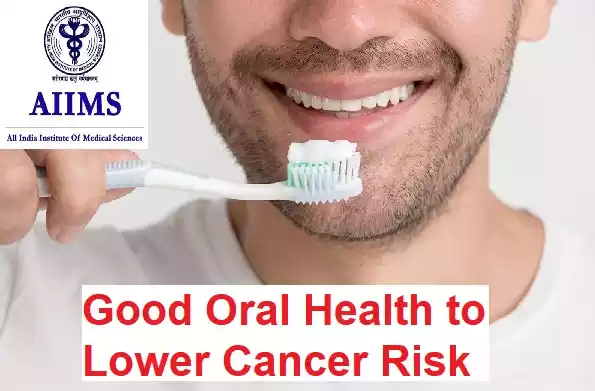A recent study by researchers at the All India Institute of Medical Sciences (AIIMS), Delhi has underscored the crucial link between oral health and cancer prevention, calling for system-wide integration of oral care across all levels of healthcare. The study was published in The Lancet Regional Health – Southeast Asia earlier this month.
Oral Health Tied to Cancer Risk and Survivorship
According to oncologists Dr. Abhishek Shankar and Dr. Vaibhav Sahni, poor oral hygiene is not just linked to tooth decay or gum disease but also to serious health conditions like cardiovascular disease, diabetes, Alzheimer’s, and various cancers, including those of the head and neck, digestive tract, breast, pancreas, prostate, and lungs.
The study cites data from the International Head and Neck Cancer Epidemiology (INHANCE) Consortium, which analyzed over 21,000 cases and controls. It found that good oral hygiene—measured by regular dental visits, fewer missing teeth, and daily brushing—was associated with a modest but significant reduction in the risk of head and neck cancers.
Role of Oral Bacteria and Cancer Therapy
The presence of harmful oral bacteria such as Porphyromonas gingivalis and Prevotella intermedia has been shown to increase cancer incidence and reduce survival rates. The research also highlights that radiotherapy for head and neck cancers often disrupts the oral microbiome, increasing the risk of post-treatment complications, especially in patients with severe periodontal disease.
“Maintaining oral hygiene before, during, and after cancer therapy is critical for improving survivorship outcomes,” the researchers stated.
The Case for Oral Health Policy Reform
Data from the CHANCE study further suggests that routine dental visits over a decade correlate with reduced cancer mortality. Yet, researchers note a lack of original data from Southeast Asia, calling for more region-specific studies and public health strategies.
Recommendations for India and Southeast Asia
The study proposes a series of low-cost, high-impact interventions, including:
- Supervised tooth-brushing programmes for children
- Free distribution of toothbrushes and toothpaste
- Oral health awareness for teachers and families
- Development of affordable, evidence-based point-of-care diagnostics
- Implementation of nutrition and sugar warning labels
- Ban on proxy tobacco advertising and child-targeted junk food promotions
Such programmes have already proven effective in England, reducing tooth decay and health-related inequalities.
However, the researchers acknowledged operational challenges in India and similar regions — such as economic constraints, lack of oral health awareness, and limited motivation among school staff.
A Call for Action
“It is abundantly clear that oral healthcare significantly impacts overall health and cancer outcomes,” Dr. Shankar and Dr. Sahni concluded. “We must move beyond viewing oral health as secondary and embed it in mainstream healthcare and public policy—especially in the WHO South-East Asia Region.”
(The content is sourced from agencies and has not been edited by mtimes.co.in.)
Get Latest News Live on MTIMES along with Breaking News and Top Headlines, Political News and around The World.
You May Like
Trending Searches Today |
PM Modi Sets $20 Billion Trade Target with Brazil by 2030
“India Struck Pakistan Hard and Smart”: Tharoor Praises Operation Sindoor in the US
Honeymoon Turns Tragic: Wife Sonam Arrested for Plotting Husband Murder, Meghalaya
Bridge Collapse in Vadodara: 10 Dead, Several Injured, Rescue Operations Underway
Shubhanshu Shukla to PM Modi from Space: “16 Sunrises, 16 Sunsets – Earth Has No Borders”
NEET-PG 2025 to Be Held on August 3: Supreme Court Allows NBE Extension, Denies Further Delay






